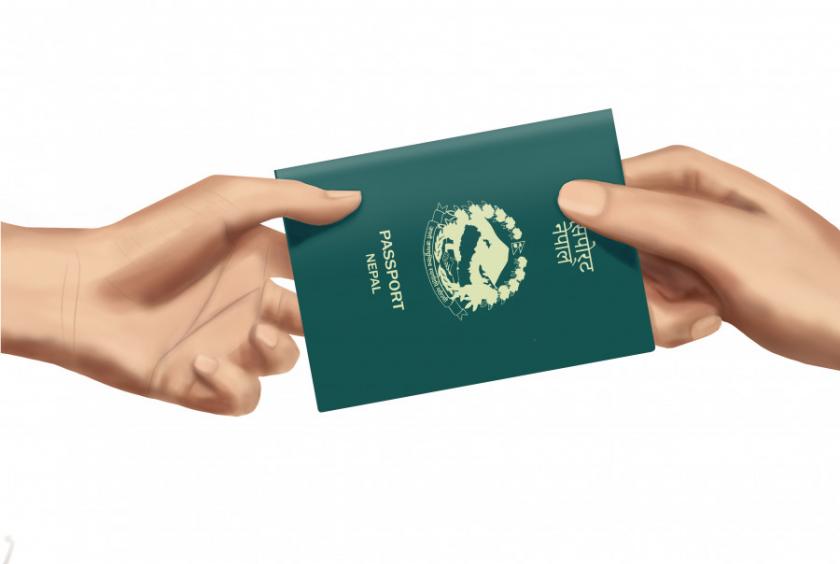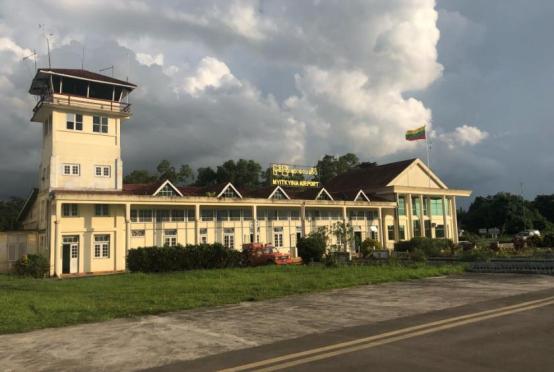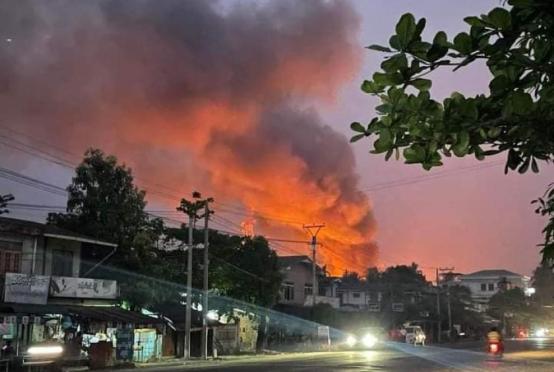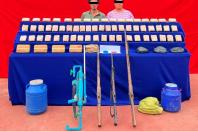by Prithvi Man Shrestha
KATHMANDU (The Kathmandu Post/ANN) - There is a stock of 570,000 ordinary passports, enough to last nine months, according to the Department of Passports.
The government has backed itself into a wall over the delivery of passports as the stocks of existing machine-readable passports is fast depleting. The country is also facing a looming crisis of excise stickers.
After abruptly cancelling a global tender for the printing and supply of 5 million e-passports, the government initiated the government to government move to procure the Security Printing Press from either France or Germany.
The Security Printing Press, once set up, was also expected to print excise duty stickers and postal stickers within the country. As per Excise Duty Regulations, liquor and tobacco manufacturers and importers must paste excise duty stickers on their products to sell them in the market.
The tax officials said that the tax authority has run out of stickers meant for imported liquor and it will be without stickers for some highly saleable liquor products within a month or a month and a half.
They said that existing stocks may last until June or July but it is without the option after the Supreme Court on November 15, last year, issued an interim order putting a halt to the procurement process for new stickers through an international competitive bid. The department had planned to procure around 8 billion stickers for use over the next two years.
The next hearing on the case is scheduled for February 24. “Even if the court paved the way for procuring the stickers from abroad, there is confusion about whether to continue the existing procurement process or call fresh tender,” said Thaneshwor Gautam, deputy director-general at the Inland Revenue Department.
The court had issued its order in response to a writ claiming that the tender barred domestic printing companies from participating in the bid. Reports suggested that there was also pressure from the Ministry of Communication and Information Technology on the Finance Ministry to stop the tender for stickers because it was in negotiations to set up a dedicated security printing press in the country. But, Gautam said he was not aware of any such pressure. “I don’t know if there was any internal pressure,” he said.
According to the Department of Passports, there is a stock of 570,000 ordinary passports which, officials said, could be enough over nine months. Likewise, there is a stock of around 1,700 official passports.
The government in November last year scrapped the tender notice for the printing, supply, delivery, installation, testing, and commissioning of equipment and personalisation of electronic machine-readable travel documents, citing the cabinet decision of procuring the security printing press and print the passport inside the country.
“We are now without options for getting new passports,” said Ram Kaji Khadka, director general at the Department of Passport. “With the current stock of passports, we may be able to sustain the demand for nine months to one year. But, it will be difficult to arrange for additional passports if demand surges suddenly.”
According to him, the department has been issuing around 50,000-60,000 passports monthly. “Sometimes, we also issue around 100,000 passports in a month,” he said.
Khadka said that there has so far been no discussion on the scenario emerged after the parliamentary Public Accounts Committee instructed the government to halt the procurement process for Security Printing Press. “Although we are not in a crisis yet, we have to be prepared for any possibility,” said Khadka.
Minister for Communication and Information Technology Gokul Prasad Baskota was forced to resign after being caught on tape negotiating for a Rs700 million “commission” with the local agent of a Swiss company which wished to get the contract of supplying the printing machine.
The parliamentary Public Accounts Committee on Thursday instructed the government to halt the procurement process of Security Printing Press citing a possible deal for a commission in the planned procurement.
There is now uncertainty over whether this procurement process would move ahead after the latest scandal. It could have huge ramifications as the government may not be able to ensure the availability of passports for a large number of migrant workers and students who go abroad for work or study in the near future.
Experts say that a possible shortage of passports highlights the incompetence of the government which has almost a two-third majority. “What can be more incontinence than keeping the nation without the option for vital documents like passports instead of securing large commissions from middlemen?” asked Rameshwor Khanal, former Finance Secretary, also a critic on good governance.
He also said that the audiotape allegedly involving Baskota also made the government’s claims for good governance hallow. Prime Minister KP Sharma Oli has been preaching the slogan ‘Neither I commit Corruption nor allow Others to Commit Corruption’, but his government has been embroiled in several controversies related to irregularities.
The possible passport crisis could be a huge setback for the remittance economy as it contributed 26 percent of the Gross Domestic Product as of fiscal year 2018-19, according to the Finance Ministry. Nepal sends around 750 Nepali migrants abroad for work.
In the last fiscal year 2018-19, as many as 243,868 migrant workers left the country for jobs abroad. During the first half of the current fiscal, as many as 137,400 migrant workers left the country, according to the Nepal Rastra Bank data.
Over 1.3 million Nepalis departed abroad in 2019, according to the Department of Immigration, suggesting the need passports the country requires.
















